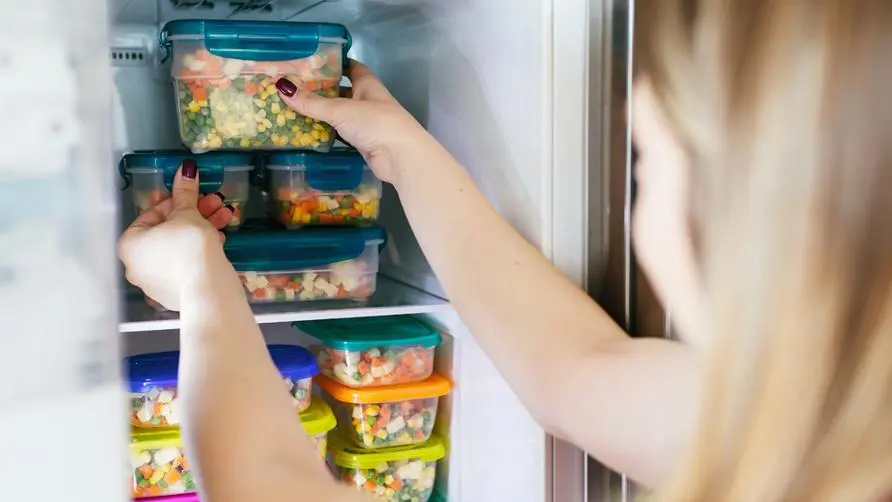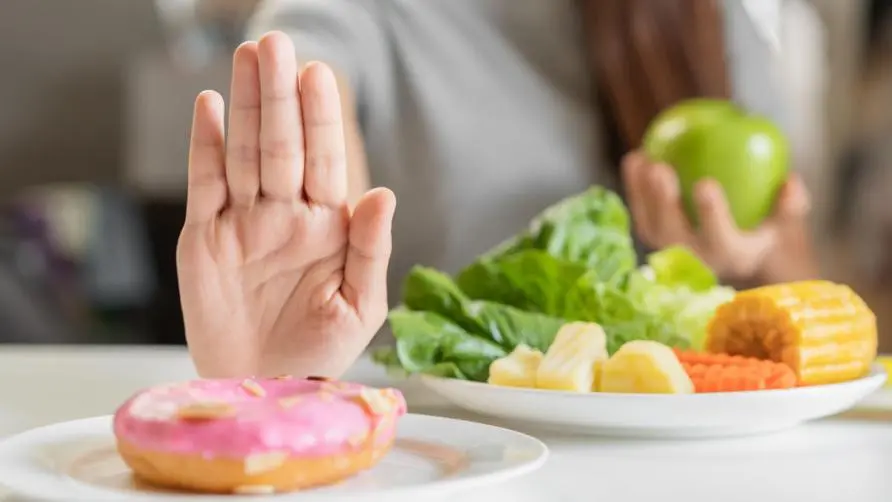Stop overcrowding your refrigerator! Expert: 6 "bad cooking habits" that are extremely unhealthy and may lead to food poisoning

Wrong behaviors when cooking or storing food often become “pathogenic factors” in life, and a little carelessness may harm the human body! Professor Zhao Mingwei, a toxicology expert and professor of the Department of Biotechnology of Chung Yuan University, posted on social media that food safety accidents have been reported frequently recently. Many people have begun to cook meals at home and avoid eating out for health reasons. However, they do not know that they are handling them in the wrong way. Food may also induce severe food poisoning.
Is it possible to get food poisoning from cooking at home? Don’t make the “3 big mistakes” when storing food
Professor Zhao Mingwei pointed out that first of all, from the perspective of “food storage”, the “three major mistakes” commonly made by the public are as follows. It is recommended to avoid the following behaviors as much as possible to avoid the breeding of bacteria or mold:
If the food becomes moldy, just cut it off. Once food becomes moldy, it must be “thrown away”. You cannot just cut off the moldy parts, because areas that do not appear to be moldy to the naked eye are likely to be contaminated by mold, so the entire food must not be eaten.
The refrigerator is too full. The refrigerator is not a preservative box for food. Do not put too much food in or out of the refrigerator. If the refrigerator space is airtight and the cold air cannot flow, it will be difficult to ensure its cold retention. Not only will it produce odor, but it will also easily breed bacteria.
Store whole grains in the refrigerator. It is best to eat the ingredients as soon as possible. For mung beans, red beans and other whole grains that are not ready to be eaten after opening, just put them in a sealed jar and place them in a cool and dry place indoors. There is no need to put them in the refrigerator: firstly, they will not be susceptible to moisture, and secondly, they will not be affected by moisture. After being stuffed into a corner of the refrigerator, it was forgotten, causing it to expire and become moldy.
Will cooking with “high heat and quick stir-frying” hurt your lungs? Experts remind: Be sure to turn on the range hood!
As for cooking food, many people think that washing vegetables with running water is a “waste of water”. Professor Chiu Mingwei clarified that after removing soil and impurities from fruits and vegetables, it is best to rinse the fruits and vegetables under a small stream of water for at least 5 minutes. Fruits and vegetables should be rinsed with a small amount of water for a period of time, or soaked and rinsed with some baking soda, to ensure that the pesticides are washed away. In addition, when choosing fruits and vegetables, it is also best to buy seasonal and organic ingredients.
Whether it is restaurant cooking or home cooking, cooks are always accustomed to “sautéing over high heat” in order to add aroma to the food. In fact, this cooking method is prone to producing fumes and affecting lung health. It is recommended to make a slight adjustment: after heating the pot, put down the vegetables and pour a little water, then cover the pot. After a few minutes, wait for the vegetables to be half-cooked before adding oil and stir-frying. This can greatly reduce the oil smoke and the taste of the stir-fried dishes is no worse than stir-frying over high heat. It is also a healthier method.
In addition to reducing the cooking behavior of high fire and quick stir-frying, cooks are also advised to develop the habit of turning on the range hood as soon as the kitchen is turned on. Many cooks think that there is no need to turn on the range hood because there is not much oil smoke. This is actually not correct. In addition, the ideal setting of the range hood is to be located directly in front of the boiler like a Teppanyaki restaurant. As soon as the oil smoke comes out, it will be sucked away and the path of the oil smoke will be shortened as much as possible. Common range hood configurations in today’s homes tend to suck oil fumes upwards, which can easily cause cooks to inhale oil fumes. This is not an ideal design.
Finally, Professor Zhao Mingwei said that in order to prevent food poisoning from harming the human body, in addition to the above six major actions, exercise or outdoor activities, a balanced diet and a normal routine are all crucial. In particular, modern people have relatively few opportunities and time to stay outdoors, so they should seize more opportunities to get in touch with the sun on sunny days. However, whether it is sun protection or sunshine, it must still be moderate; the time of exposure to the sun should not exceed 15 minutes a day, so as not to cause harm to the body.
Further reading:





